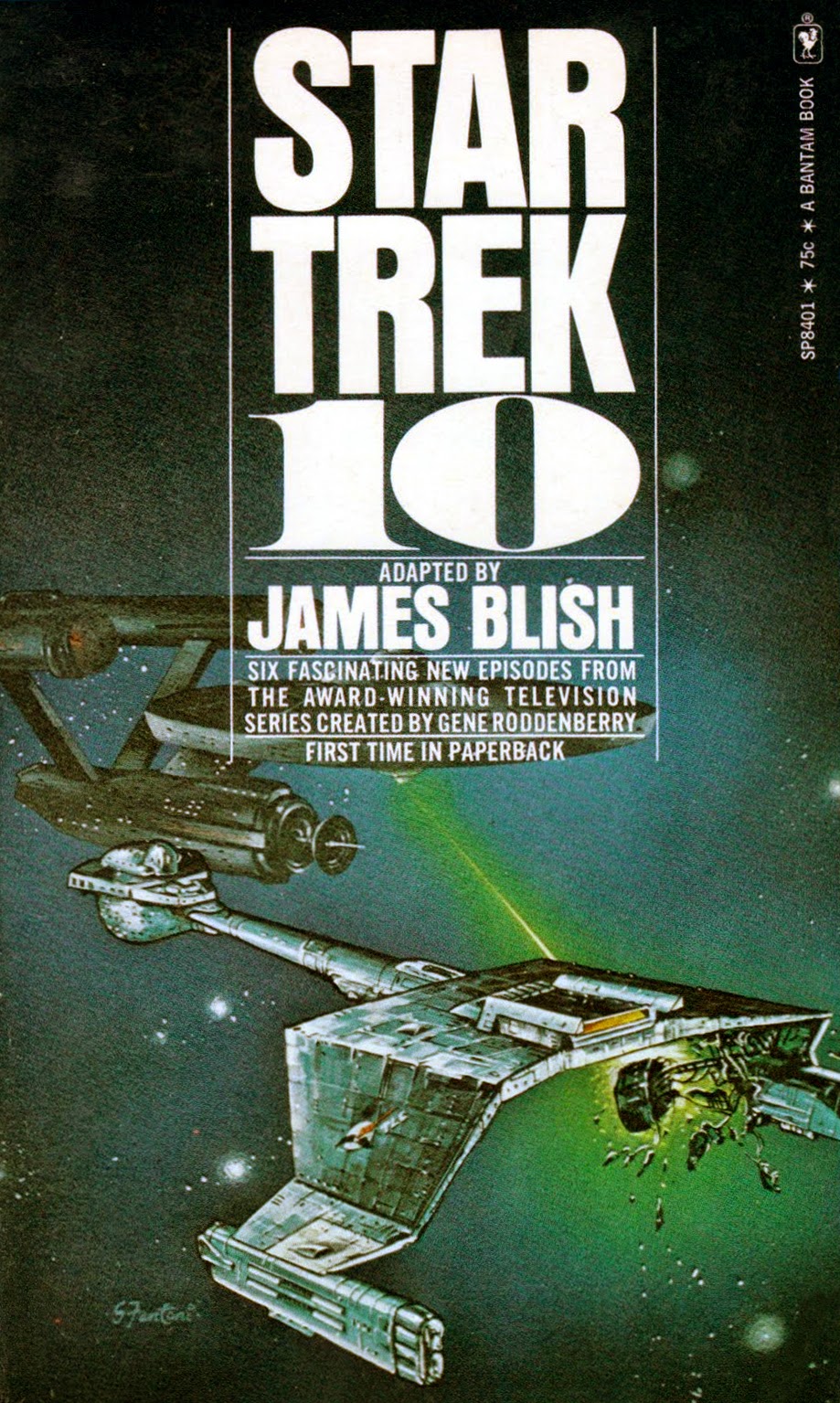It's been a year since I last posted my
thoughts on an episode of Star Trek: The Original Series, which
means I've pretty much made a hash of one of my New Year'sResolutions for 2014. I suppose I can only resolve to do better in
2015. Anyway, without further ado, here are my thoughts on The Alternative Factor.
I was first exposed to the story of
Lazarus and "anti-Lazarus" more than thirty years ago when
I read James Blish's adapation of the teleplay in Star Trek 10 (by
the way, the cover of the book, which depicts a battle between the
Enterprise and a Klingon battlecruiser, is completely misleading –
no such scene is portrayed in any of the stories contained between
its covers).
I thought the story was interesting,
even compelling.
The cover of Star Trek
10 – no such battle is portrayed in any of the stories in this book
- needless to say, I was taken in by the cover and snapped up the
book and ended up being quite the disappointed grade-schooler
Viewing the actual episode just
highlights one of the main problems with the story – the crew of
the Enterprise are merely spectators to the story of Lazarus and
anti-Lazarus, which goes a little something like this: Lazarus has
been driven mad by the discovery that an anti-Lazarus exists in a
parallel antimatter universe, and, despite the fact that Lazarus and
anti-Lazarus can only come into non-cataclysmic-causing contact in a
"corridor" connecting their respective universes (Lazarus
on anti-Lazarus contact outside of this "corridor" would
result in the destruction of both universes), Lazarus is intent on
cornering anti-Lazarus outside of this "corrider" and
coming to grips with him.
Lazarus...or possibly
anti-Lazarus...either way, one of them, looking rather unhinged
The problem with the episode (I'm
referring to the problem of Kirk and his crew being immaterial to the
story, not to the rather unsatisfactory motivation of the villain)
didn't really register when I read the novelization because the
characterizations of Lazarus and anti-Lazarus were interesting enough
to captivate me – when I read James Blish's adaptation, I imagined
anti-Lazarus, the real hero in this story (Kirk is relegated to being
his sidekick in The Alternative Factor), someone who is willing to
consign himself to being trapped for eternity battling Lazarus in the
"corridor" joining their respective universes so as to save
both their universes, as being a tragic yet heroic figure with
Lazarus being a malignant enigma.
Unfortunately, Robert Brown, the actor
who portrayed both Lazarus and anti-Lazarus, wasn't really up to the
task of essentially carrying the episode. As the calm and rational
anti-Lazarus, his performance is barely adequate. As the unhinged
Lazarus, his portrayal is limited to mad scenery chewing rants and
frequent dizzy spells which usually end with him falling from great
heights onto very rocky surfaces and somehow managing to avoid
turning into strawberry jam from the impact.
Lazarus about to fall,
something which happens with alarming, giggle-inducing frequency in
The Alternative Factor
The
frequency of Lazarus's episodes of vertigo and his being seemingly
impervious to blunt force trauma results in many parts of The Alternative Factor being unintentionally hilarious.
Unfortunately,
the hilarity of the bad bits aren't enough to catapult The Alternative Factor into the category of being So Bad It's Good.
It's
merely bad.
























